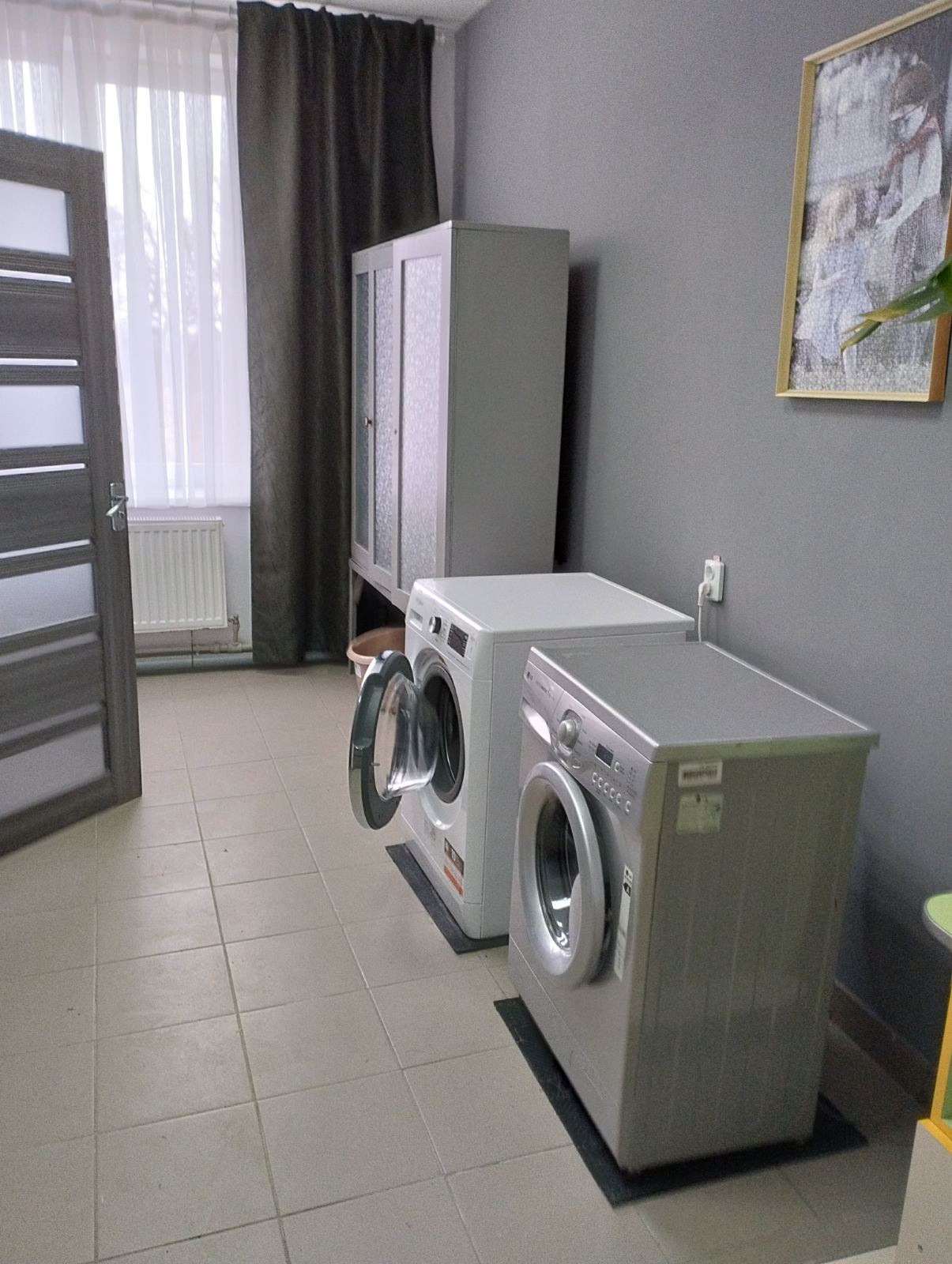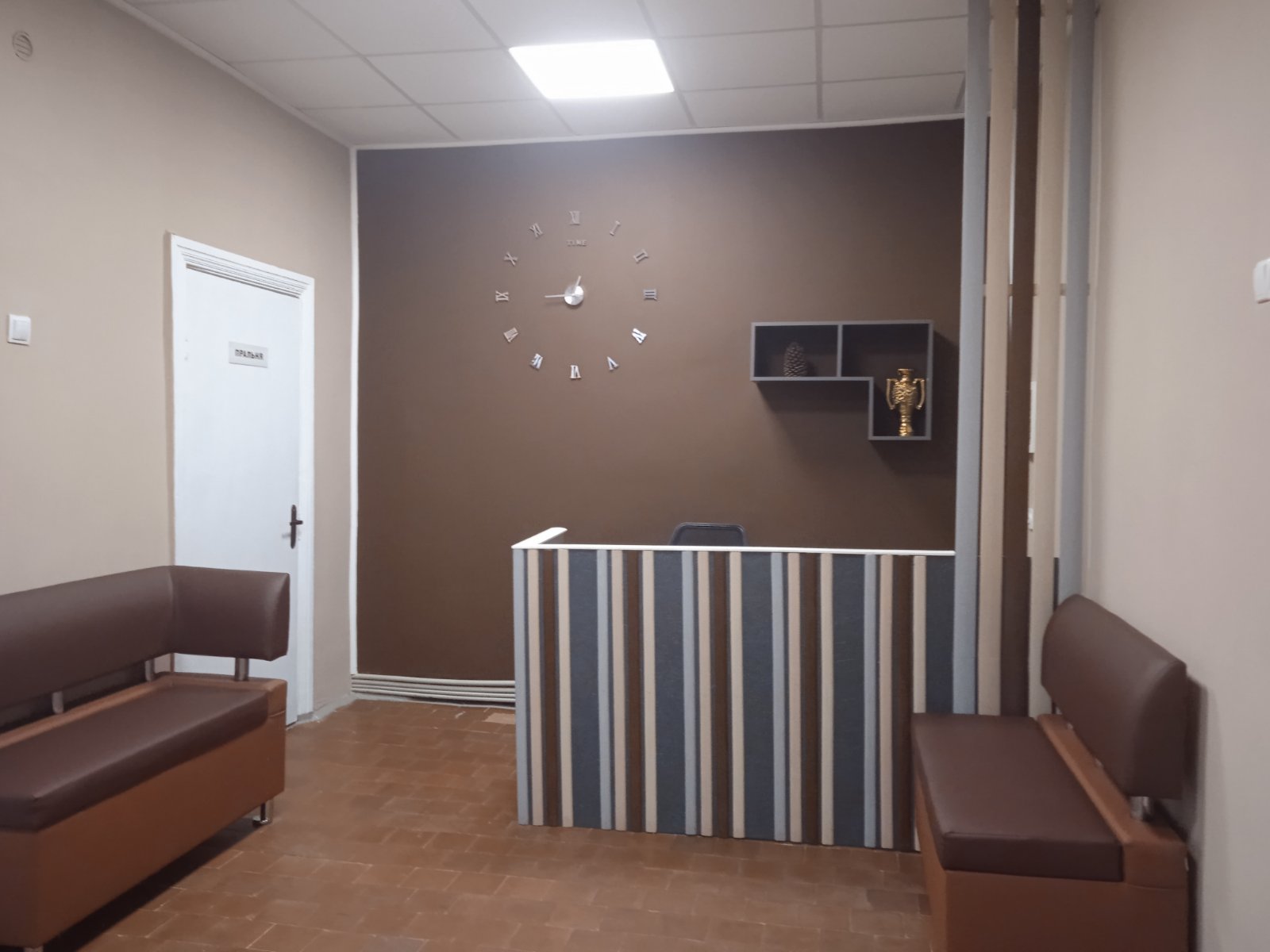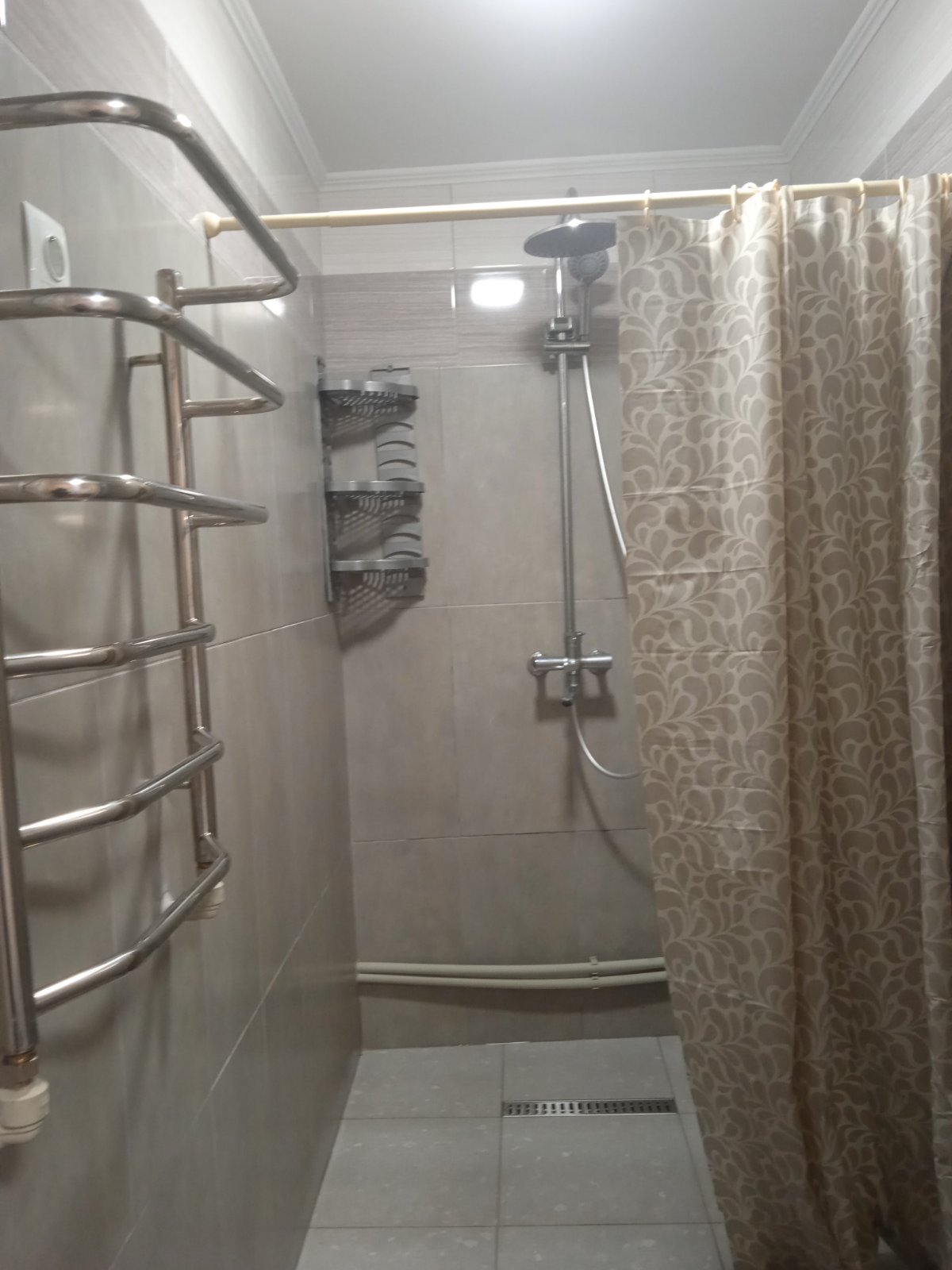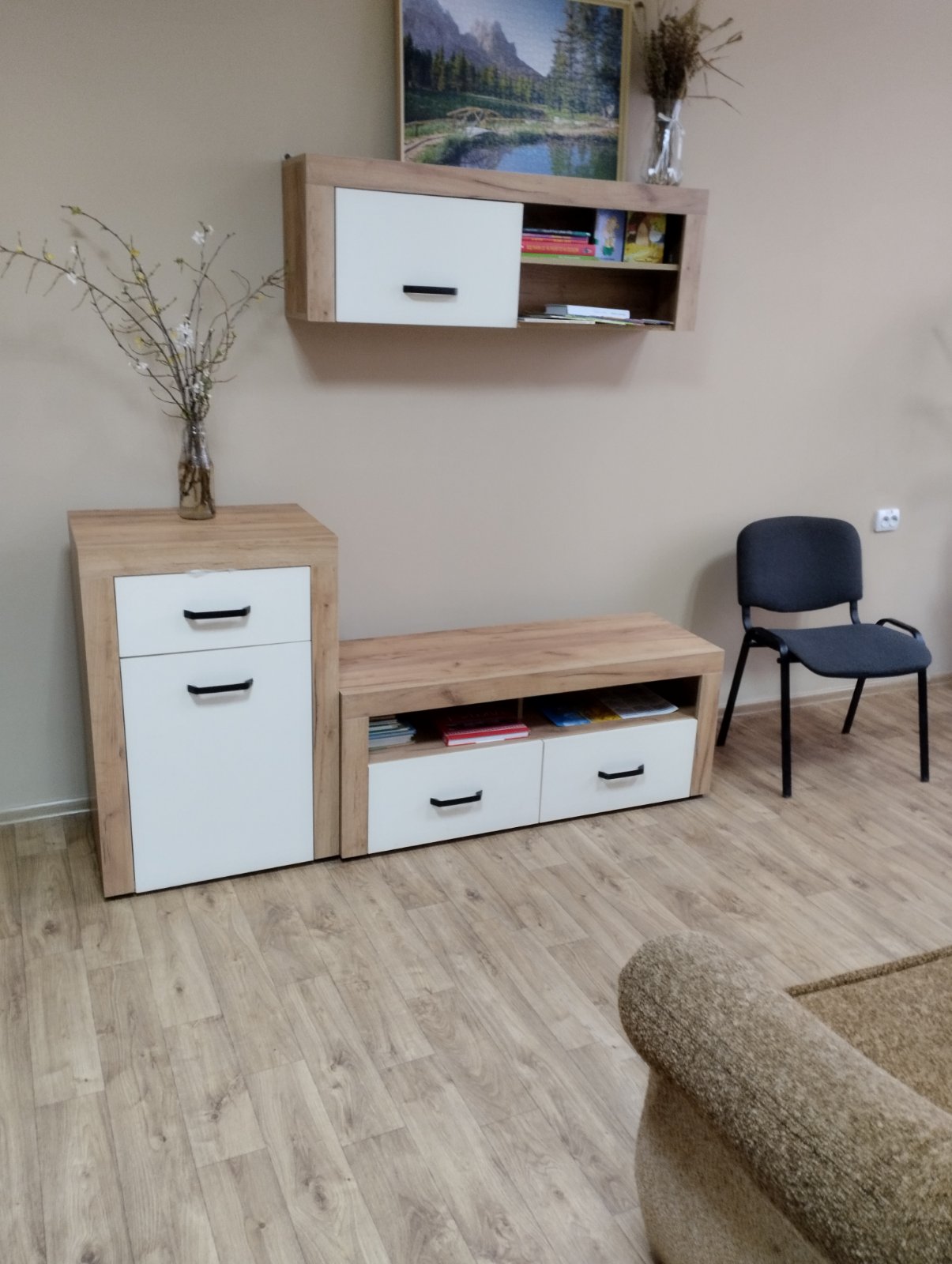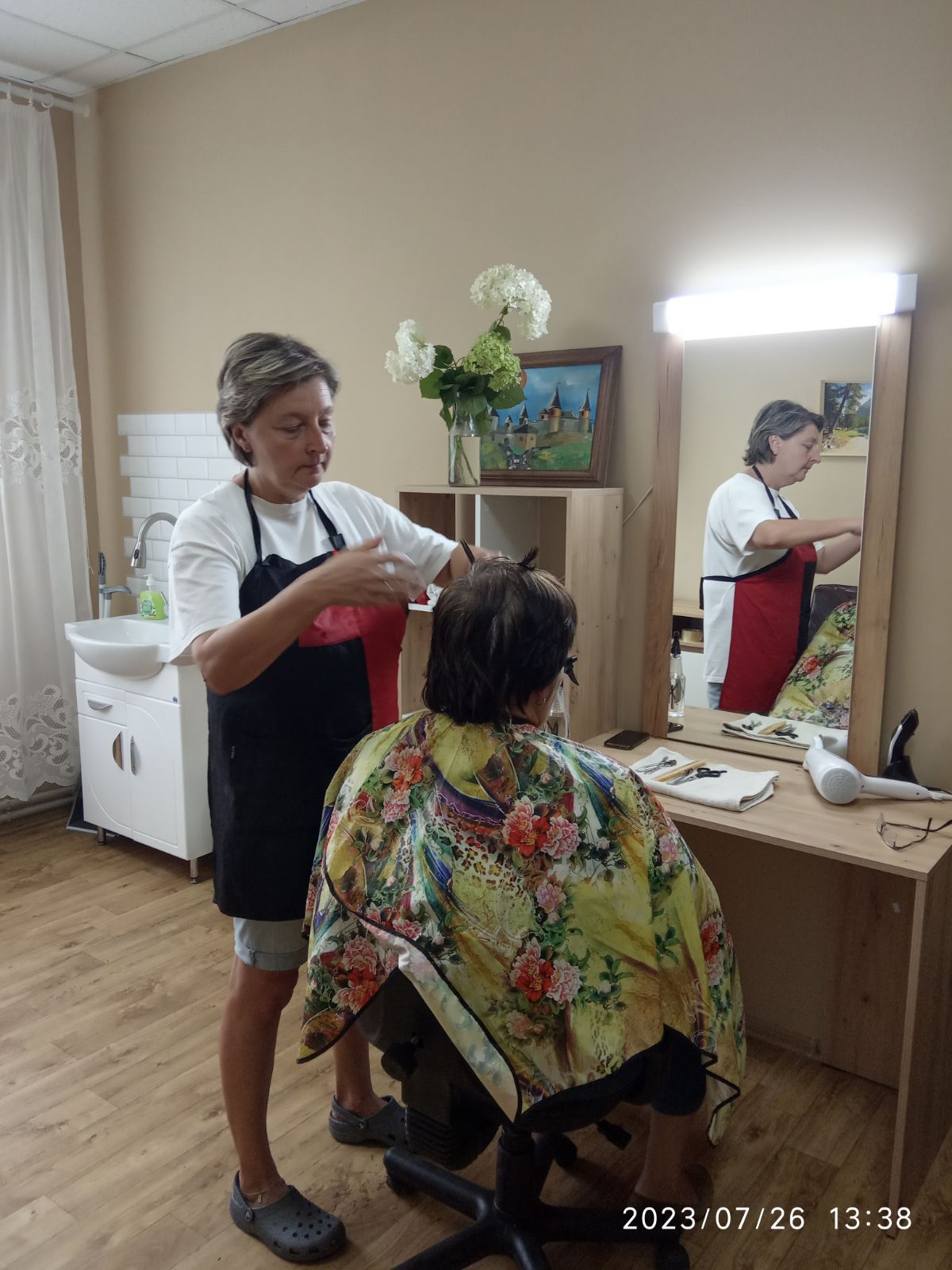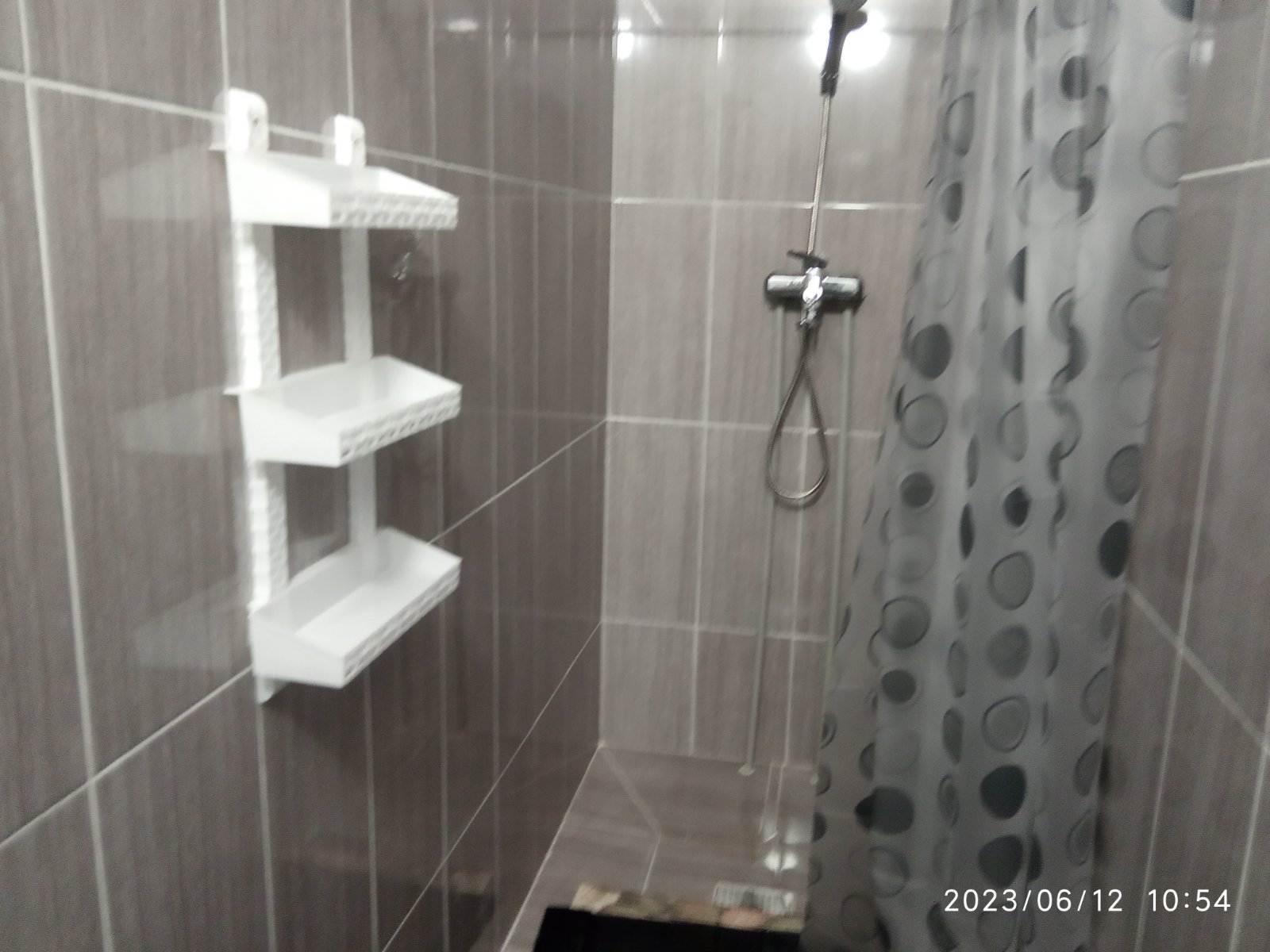Prioritising the places and people that need it the most
"Social Support for All 100"
Social Support for All 100%: Equal Opportunities for Access to Social Services in Rural Localities
Ensure equal access to social services for rural residents of the community, particularly those living in remote and hard-to-reach areas, by establishing service points at their place of residence, through infrastructure development and the implementation of new service delivery approaches.
The project involves the introduction of an innovative model for creating social service points. As a result residents will gain quick and convenient access to social needs, improving their quality of life
The project involves the introduction of an innovative model for creating social service points. As a result residents will gain quick and convenient access to social needs, improving their quality of life
Ukraine
Local
Ukraine, Horodotska City Territorial Community of Khmelnytskyi Region
Mainly rural
It refers to other types of transformations (soft investment)
Yes
2025-01-14
No
No
No
As a representative of an organisation
Our goal is to ensure equal access to social services for rural residents living in remote and hard-to-reach areas of the community. This is achieved through the establishment of social service points at their place of residence, infrastructure development, and the introduction of innovative approaches to service delivery.
By creating innovative social spaces that combine sustainability, aesthetics, and inclusion, residents will have quick and convenient access to basic social needs, which will improve the quality of life and reduce social isolation.
Our target audience is the elderly, people with disabilities, internally displaced persons, families in difficult life circumstances, and low-income families.
The Municipal Institution "Center for the Provision of Social Services" is the only provider of social services in the community. Its mission is to guarantee a high standard of care for all residents, regardless of their location.
Expanding the network of social service points is a logical step in response to the growing demand for services, particularly in rural areas where such points are already operational. Currently, there are six service points within the Horodotsk City and Territorial Community, located in the villages of Kuzmin, Pilnyi Oleksinets, Velyka Yaromyrka, Stara Pisochna, Kupyn, and Lisohirka. These service points operate under the "Faith in Life" department of the Municipal Institution "Center for the Provision of Social Services of the Horodotsk City Council."
These centers have become essential lifelines for community residents, many of whom lack access to basic social services such as laundry, bathing, and hairdressing. The growing popularity of these points in remote areas demonstrates their effectiveness in addressing residents' daily needs, promoting not only physical well-being but also preserving human dignity.
By creating innovative social spaces that combine sustainability, aesthetics, and inclusion, residents will have quick and convenient access to basic social needs, which will improve the quality of life and reduce social isolation.
Our target audience is the elderly, people with disabilities, internally displaced persons, families in difficult life circumstances, and low-income families.
The Municipal Institution "Center for the Provision of Social Services" is the only provider of social services in the community. Its mission is to guarantee a high standard of care for all residents, regardless of their location.
Expanding the network of social service points is a logical step in response to the growing demand for services, particularly in rural areas where such points are already operational. Currently, there are six service points within the Horodotsk City and Territorial Community, located in the villages of Kuzmin, Pilnyi Oleksinets, Velyka Yaromyrka, Stara Pisochna, Kupyn, and Lisohirka. These service points operate under the "Faith in Life" department of the Municipal Institution "Center for the Provision of Social Services of the Horodotsk City Council."
These centers have become essential lifelines for community residents, many of whom lack access to basic social services such as laundry, bathing, and hairdressing. The growing popularity of these points in remote areas demonstrates their effectiveness in addressing residents' daily needs, promoting not only physical well-being but also preserving human dignity.
Inclusion
Social services
Accessibility
Psychological support
Social cohesion
One of the main goals of the project is to create a barrier-free system for accessing social services for all population groups, especially the elderly, persons with disabilities, internally displaced persons, families in difficult life circumstances, and residents of rural areas within the community.
Expanding the network of social service points will enable community members to meet their basic needs, such as care, hygiene services, laundry, food, and consultations with social workers and psychologists.
An essential component of the project is the provision of psychological support. People in difficult life circumstances, particularly internally displaced persons, often lack access to qualified assistance. The work of psychologists directly within the community allows them to receive the necessary support on-site, contributing to emotional recovery, adaptation, and the reduction of stress, depression, and anxiety levels.
The planned facilities aim to create barrier-free conditions for the provision of social services. Another key goal of the project is to encourage active participation from local residents in supporting socially vulnerable groups. This promotes the development of the volunteer movement, collaboration with local businesses, training citizens in the basics of social and psychological work, and fostering a culture of mutual assistance.
Through this project, the community will be able to independently support its residents even after its completion. The initiative not only seeks to expand access to social services but also aims to establish sustainable support mechanisms that will enhance the quality of life for community members in the long term.
Expanding the network of social service points will enable community members to meet their basic needs, such as care, hygiene services, laundry, food, and consultations with social workers and psychologists.
An essential component of the project is the provision of psychological support. People in difficult life circumstances, particularly internally displaced persons, often lack access to qualified assistance. The work of psychologists directly within the community allows them to receive the necessary support on-site, contributing to emotional recovery, adaptation, and the reduction of stress, depression, and anxiety levels.
The planned facilities aim to create barrier-free conditions for the provision of social services. Another key goal of the project is to encourage active participation from local residents in supporting socially vulnerable groups. This promotes the development of the volunteer movement, collaboration with local businesses, training citizens in the basics of social and psychological work, and fostering a culture of mutual assistance.
Through this project, the community will be able to independently support its residents even after its completion. The initiative not only seeks to expand access to social services but also aims to establish sustainable support mechanisms that will enhance the quality of life for community members in the long term.
The "Social Support for Everyone" project not only provides access to social services but also sets a new standard for their delivery. Our goal is to ensure that every person feels cared for and comfortable while receiving high-quality social services in a welcoming environment.
Social service points should be more than just functional, they should be aesthetically appealing, cozy, harmonious, and accessible, fostering positive emotions. Key elements of these service points include: well-designed lighting, soothing natural color schemes, eco-friendly materials, thoughtfully arranged waiting areas with comfortable furniture, modern shower cabins, washing machines, and dedicated workspaces for a hairdresser, psychologist, and social worker. Additionally, an inclusive design ensures barrier-free access for people with disabilities, while staff members go beyond their duties to provide compassionate and attentive service.
This project has become a model for social cohesion. Our remote social service points not only meet basic needs but also serve as community hubs for social interaction, mutual assistance, and support. They foster artistic and cultural initiatives such as creative workshops, exhibitions, themed gatherings, and film screenings.
This approach fosters a new level of social connection, where everyone feels valued and engaged in the community, strengthening development, mutual support, and trust among residents. By introducing innovative formats of social support, this project can serve as an example for other communities, demonstrating that social services can be more than just assistance—they can be a source of positive experiences and meaningful connections.
Social service points should be more than just functional, they should be aesthetically appealing, cozy, harmonious, and accessible, fostering positive emotions. Key elements of these service points include: well-designed lighting, soothing natural color schemes, eco-friendly materials, thoughtfully arranged waiting areas with comfortable furniture, modern shower cabins, washing machines, and dedicated workspaces for a hairdresser, psychologist, and social worker. Additionally, an inclusive design ensures barrier-free access for people with disabilities, while staff members go beyond their duties to provide compassionate and attentive service.
This project has become a model for social cohesion. Our remote social service points not only meet basic needs but also serve as community hubs for social interaction, mutual assistance, and support. They foster artistic and cultural initiatives such as creative workshops, exhibitions, themed gatherings, and film screenings.
This approach fosters a new level of social connection, where everyone feels valued and engaged in the community, strengthening development, mutual support, and trust among residents. By introducing innovative formats of social support, this project can serve as an example for other communities, demonstrating that social services can be more than just assistance—they can be a source of positive experiences and meaningful connections.
The project "Social support for everyone" is built on the principle of inclusion and equal access,which ensures architectural accessibility,adapted services,inclusive management systems and community involvement in decision-making. Accessible and comfortable spaces for all residents,regardless of age,physical capabilities or social status.Support of less mobile groups,elderly people,low-income and socially vulnerable population groups.Social integration and reduction of isolation through the creation of centers of communication, support and psychological assistance. All points of provision of social services are equipped with ramps, tactile pointers, the premises have wide doorways that provide comfort for people with reduced mobility,and information stands are used.The creation of such points makes it possible to provide social services to people who live in remote villages and often do not have the opportunity to visit the city.The "nothing for us without us" principle we use:People with disabilities,internally displaced persons and other vulnerable groups are involved in the implementation and improvement of the projectRegular meetings with villagers, a feedback mechanism through surveys, questionnaires and feedback help to adapt services according to real needs.Social service points are not just a place to receive help, but spaces for communication and support. Interactive events, meetings, master classes that promote socialization are organized. Social volunteering initiatives are supported, where residents help one another (for example, young people support the elderly)The project shows that inclusion is not just the availability of premises,but a complex model of social support.The project demonstrates that social services can be"Social support for everyone"is an example of how to create an inclusive social security system that not only helps vulnerable groups,but also changes the social environment.
The "Social Support for Everyone" project is a collaborative effort of the community, ensuring its popularity and high demand among rural residents. Active involvement of community members has played a key role in its success. Residents were helped to identify essential needs, contributed ideas for setting up social service points, and even participated in their arrangement by assisting with minor repairs and landscaping.
Given the significant demand in rural areas, where six social service points are already operating, expanding the project is a logical next step. These points have become essential for residents who often lack access to basic social services. Their growing popularity highlights their effectiveness in addressing daily needs, improving not only physical well-being but also preserving human dignity.
We receive only positive feedback, people are satisfied because they no longer need to travel from villages to the city, saving their family budget. At these service points, they can do laundry, take a shower, get a free haircut, and receive psychological support, all within their own village. Especially in these challenging times for Ukraine, we remain committed to supporting rural residents and internally displaced persons who have lost their homes and now live in our community’s villages.
Residents of villages where such points have not yet been established continuously request their expansion. The project has strengthened trust in local authorities, fostered social connections, and created an effective model of community self-organization. Inspired by this success, we are not stopping, we actively seek funding through various initiatives and strive to establish a social services and psychological support point in every village of our community!
Given the significant demand in rural areas, where six social service points are already operating, expanding the project is a logical next step. These points have become essential for residents who often lack access to basic social services. Their growing popularity highlights their effectiveness in addressing daily needs, improving not only physical well-being but also preserving human dignity.
We receive only positive feedback, people are satisfied because they no longer need to travel from villages to the city, saving their family budget. At these service points, they can do laundry, take a shower, get a free haircut, and receive psychological support, all within their own village. Especially in these challenging times for Ukraine, we remain committed to supporting rural residents and internally displaced persons who have lost their homes and now live in our community’s villages.
Residents of villages where such points have not yet been established continuously request their expansion. The project has strengthened trust in local authorities, fostered social connections, and created an effective model of community self-organization. Inspired by this success, we are not stopping, we actively seek funding through various initiatives and strive to establish a social services and psychological support point in every village of our community!
The successful implementation of the project was made possible through active collaboration among various local stakeholders:
• Local Government – The Horodok City Council provided premises, financial support, activity coordination, and oversight of project implementation.
• CU "Center for the Provision of Social Services of the Horodok City Council" is responsible for organizing the operation of the service points, recruiting staff, and monitoring the quality of service provision.
• Local Entrepreneurs and Businesses contributed to setting up the service points by providing assistance, supplying equipment, and offering materials at reduced prices.
• Public organizations – supported communication with the population, conducted information campaigns, and assisted in recruiting volunteers.
• Educational Institutions – students and teachers from local schools and universities participated in volunteer programs and helped to develop design concepts for the service points.
• Community Residents – actively took part in initiatives, assisted in creating welcoming spaces, and engaged in public events.
This collective effort has strengthened the project’s impact, making social services more accessible and fostering a strong sense of community involvement.
• Local Government – The Horodok City Council provided premises, financial support, activity coordination, and oversight of project implementation.
• CU "Center for the Provision of Social Services of the Horodok City Council" is responsible for organizing the operation of the service points, recruiting staff, and monitoring the quality of service provision.
• Local Entrepreneurs and Businesses contributed to setting up the service points by providing assistance, supplying equipment, and offering materials at reduced prices.
• Public organizations – supported communication with the population, conducted information campaigns, and assisted in recruiting volunteers.
• Educational Institutions – students and teachers from local schools and universities participated in volunteer programs and helped to develop design concepts for the service points.
• Community Residents – actively took part in initiatives, assisted in creating welcoming spaces, and engaged in public events.
This collective effort has strengthened the project’s impact, making social services more accessible and fostering a strong sense of community involvement.
Interior design: Development of inclusive furniture and space (ergonomics, barrier-free, flexibility in use). Visual identity of the project - design of informational materials, navigation. Use of colors, fonts and materials to create a comfortable environment. Interaction: Designers collaborate with architects and psychologists to design environments that positively impact users
Sociology and social work: Studying the needs of different social groups (people with disabilities, the poor, the elderly). Development of social integration programs. Analysis of the effectiveness of measures to improve community life.
Economics and business models: Finding funding and grants for socially significant initiatives.
Added value of the project:
A comprehensive approach - the integration of design, architecture, social initiatives, and economic models creates a new, high-quality level of social support.
Sustainable development - the project not only helps people, but also creates economic opportunities (jobs, educational programs).
A model for others - the implementation of the project can become a model for similar initiatives in the future.
Social cohesion – the project unites different groups of people and promotes their interaction
Sociology and social work: Studying the needs of different social groups (people with disabilities, the poor, the elderly). Development of social integration programs. Analysis of the effectiveness of measures to improve community life.
Economics and business models: Finding funding and grants for socially significant initiatives.
Added value of the project:
A comprehensive approach - the integration of design, architecture, social initiatives, and economic models creates a new, high-quality level of social support.
Sustainable development - the project not only helps people, but also creates economic opportunities (jobs, educational programs).
A model for others - the implementation of the project can become a model for similar initiatives in the future.
Social cohesion – the project unites different groups of people and promotes their interaction
The innovativeness of the project lies in its comprehensive approach to providing social services, which distinguishes it from traditional methods in this field:
• Multifunctionality – integrating social, household, and psychological services within a single space.
• Sustainable development – implementing energy-efficient solutions and using eco-friendly materials.
• Public participation – actively involving residents in the planning, execution, and ongoing support of services.
• Inclusiveness – ensuring accessible and comfortable conditions for people with disabilities
• Multifunctionality – integrating social, household, and psychological services within a single space.
• Sustainable development – implementing energy-efficient solutions and using eco-friendly materials.
• Public participation – actively involving residents in the planning, execution, and ongoing support of services.
• Inclusiveness – ensuring accessible and comfortable conditions for people with disabilities
The project has great potential for scaling and implementation in other communities. Its key features include:
• A flexible model for delivering social services that can be adapted to various local conditions.
• Accessible technologies and methods that facilitate easy replication of the concept in other regions.
• Opportunities for collaboration with diverse partners, including public and private institutions, non-governmental organizations, and donors.
• A flexible model for delivering social services that can be adapted to various local conditions.
• Accessible technologies and methods that facilitate easy replication of the concept in other regions.
• Opportunities for collaboration with diverse partners, including public and private institutions, non-governmental organizations, and donors.
This project is more than just an example of providing social services – it transforms the community and redefines the approach to social protection as a whole. The combination of accessibility, social cohesion, entrepreneurship, and quality spaces makes this model adaptable to other regions. We demonstrate that social services can be modern, efficient, and centered around people. The barrier-free design ensures accessible premises and public spaces. Support for vulnerable groups includes assistance for people with disabilities, the elderly, and displaced persons. Our experience can serve as a valuable example for other communities!
The project aims to solve global social challenges through local initiatives:
• Global issue: unequal access to social services in remote areas.
• Local solution: establishment of accessible social points offering comprehensive services.
• Global potential: the model can be adapted to other regions and countries facing similar challenges.
• Global issue: unequal access to social services in remote areas.
• Local solution: establishment of accessible social points offering comprehensive services.
• Global potential: the model can be adapted to other regions and countries facing similar challenges.
Physical implementation of an inclusive space: Barrier-free architectural solutions have been designed to ensure comfort for people with disabilities and those with reduced mobility. Navigation systems, including tactile, audio, and visual elements, have been implemented to improve spatial orientation. Social spaces have been organized, serving as areas for work, study, and communal activities.
In total, 14 educational events (lectures, training sessions, workshops) were held for different beneficiary groups. Individual mentoring support was provided to 32 people. Social services were provided to 2,329 individuals. Additionally, 6 jobs were created, and 6 social workers were employed.
Increasing social integration: The project encourages the active participation of various social groups in community life and cooperation. For direct beneficiaries (people with disabilities, socially vulnerable groups, youth, and the elderly), the quality of life has improved due to adapted conditions for social service delivery at their place of residence.
For the indirect beneficiaries, the local community, the project has contributed to increased social cohesion. The "Social Support for All 100" project is a unique example of combining inclusive design, social support, and economic integration. It not only improves the lives of specific population groups but also shapes new approaches to social protection and social interaction.
In total, 14 educational events (lectures, training sessions, workshops) were held for different beneficiary groups. Individual mentoring support was provided to 32 people. Social services were provided to 2,329 individuals. Additionally, 6 jobs were created, and 6 social workers were employed.
Increasing social integration: The project encourages the active participation of various social groups in community life and cooperation. For direct beneficiaries (people with disabilities, socially vulnerable groups, youth, and the elderly), the quality of life has improved due to adapted conditions for social service delivery at their place of residence.
For the indirect beneficiaries, the local community, the project has contributed to increased social cohesion. The "Social Support for All 100" project is a unique example of combining inclusive design, social support, and economic integration. It not only improves the lives of specific population groups but also shapes new approaches to social protection and social interaction.

